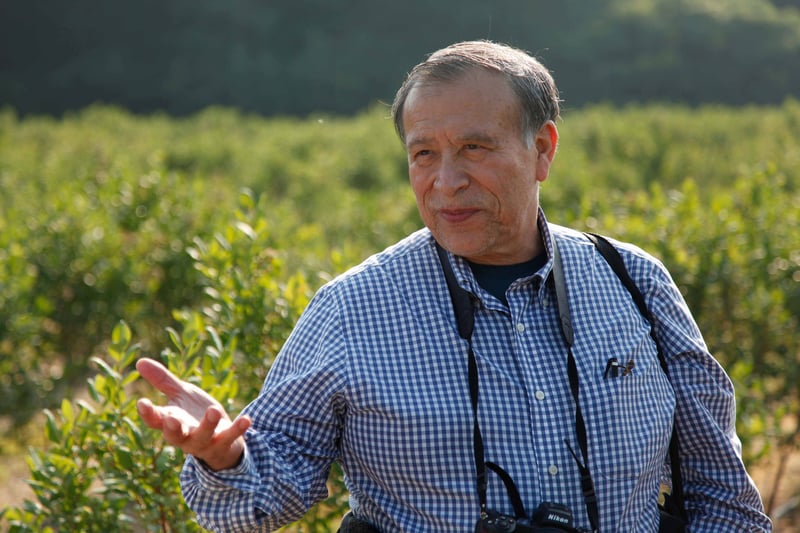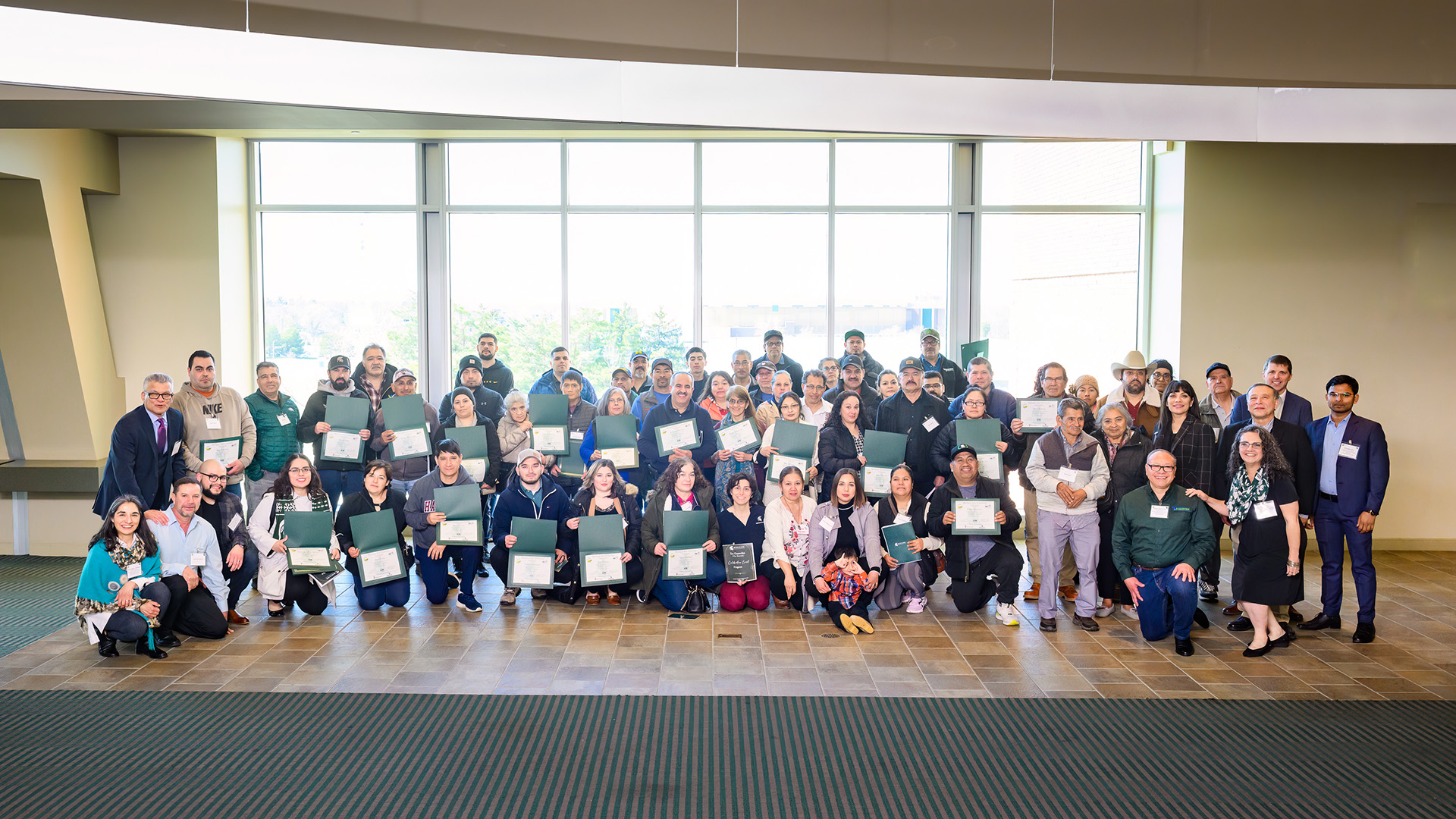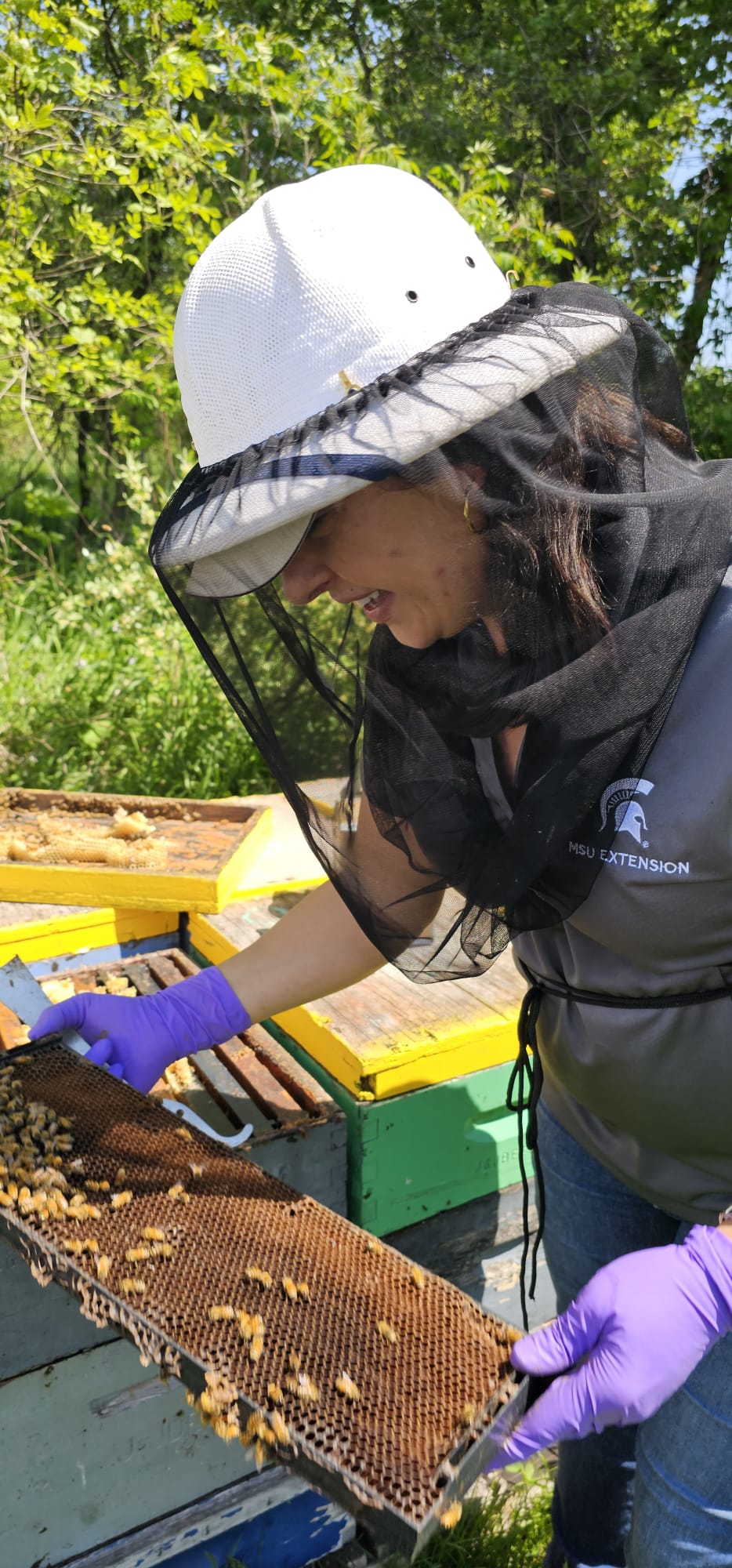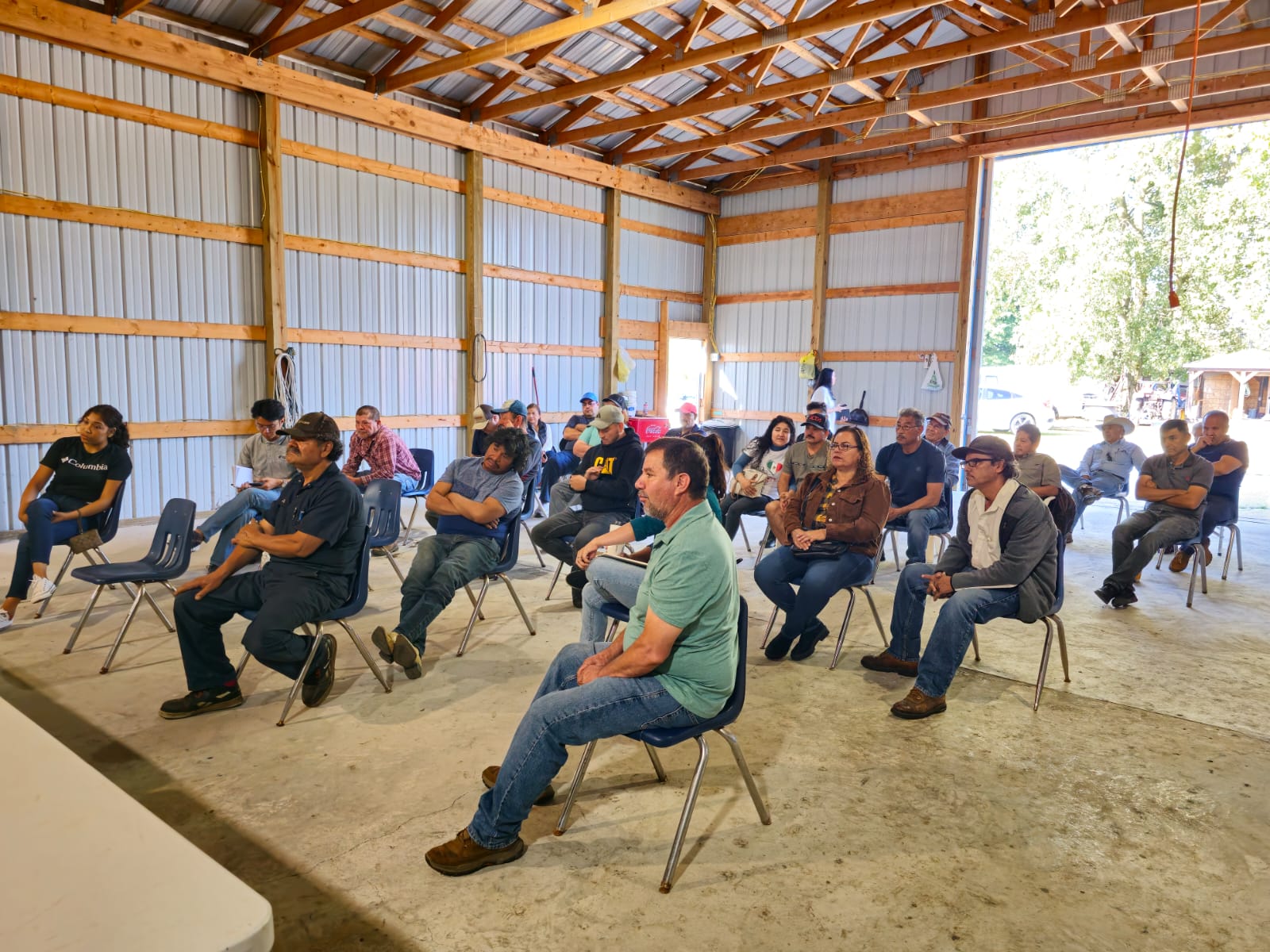For the past 10 years, Michigan State University’s Great Lakes Latina/o Farmers Program, formerly La Cosecha, has helped first-generation farmers by providing training in agricultural practices. The program recently received a $750,000 grant from the U.S. Department of Agriculture, or USDA, to support its initiatives.
“We are incredibly proud of the success of this bilingual program and the ongoing efforts to support the next generation of Michigan farmers,” said Matthew Daum, interim dean of the College of Agriculture and Natural Resources at MSU. “Securing the USDA grant is a testament to the dedication and hard work of everyone involved in this initiative.”
The program is delivered by faculty and MSU Extension educators who train farmers in pest management, forest carbon management, climate change mitigation, crop production and diversification, business and marketing as well as packaging. An important aspect of this program and its training is that it can be provided in Spanish. This means there isn’t a language barrier between the farmers and the training facilitators. The program operates by engaging with the farmers on a personal level and with an understanding of cultural and linguistic norms.
Professor Eva Almenar from the School of Packaging provides workshops for first-generation Latina/o farmers, teaching farmers how to package their fruits and vegetables to better preserve their product and extend its shelf life to become a more competitive force in the market. Almenar’s workshops also help farmers learn how to improve and grow their businesses — from introducing concepts of sustainable farming practices to cost-efficient methods of farm operations and management. Almenar also developed questionnaires to provide participants before and after the workshops to evaluate what farmers learned and what topics need more focus.
“It is a pleasure to interact with Latina/o farmers and learn from them. It goes two ways, and you both check your knowledge,” said Almenar.
David MacFarlane, a professor in the Department of Forestry, delivers workshops on managing forest land that’s adjacent to farmers’ crop fields using climate-smart methods. In collaboration with Entomology faculty, MacFarlane also teaches farmers about the connection between forests and pollination.
 Part of the bus tour, the president stopped at the Martinez Farm, an apple orchard in Conklin, which participates in the Great Lakes Latina/o Farmers Program. Back row (from left to right): Elias Lopez, Roberto Carlos Martinez, President Kevin M. Guskiewicz, Rodrigo Barbosa, Mark Largent. Front row: Juan Pedro Solorio, Paulino Martinez, Regina Rocha, Ingrid Aguyo-Fuentealba. Photograph by Nick Schrader
Part of the bus tour, the president stopped at the Martinez Farm, an apple orchard in Conklin, which participates in the Great Lakes Latina/o Farmers Program. Back row (from left to right): Elias Lopez, Roberto Carlos Martinez, President Kevin M. Guskiewicz, Rodrigo Barbosa, Mark Largent. Front row: Juan Pedro Solorio, Paulino Martinez, Regina Rocha, Ingrid Aguyo-Fuentealba. Photograph by Nick Schrader
Additionally, through the program, MacFarlane's working on new funding opportunities for first-generation Latina/o farmers to pursue — opportunities that, largely, are unknown to this community due to language barriers. The program is a great way for these farmers to build not only on their existing skill sets and knowledge but to develop a network of trusted information and resources to support their success.
“First-generation farmers don’t have historic family connections for forestry, which creates entry barriers to success,” MacFarlane said.
The workshops aim to reduce these barriers by integrating language and culture into the educational materials they receive.
2024 Great Lakes Latina/o Farmers Program team
Program director: David Mota-Sanchez, MSU Department of Entomology
Program co-directors: Luis Alonzo Garcia, MSU Migrant Student Services;
David MacFarlane, MSU Department of Forestry; Eva Almenar, MSU School of Packaging
MSU Department of Entomology: Juan Pedro Solorio, Raquel Marin
MSU Extension: Mariel Borgman, Florencia Colella, Ana Heck, Benjamin Philips, Philip Tocco, Benjamin Werling
Michigan Department of Agriculture and Rural Development: Antonio Castro-Escobar
Colegio de Postgraduados: Esteban Valtierra-Pacheco
Telamon Corporation: Sarah Perry and Angelica Solorio-Mendez
 David Mota-Sanchez visits a blueberry farm in West Michigan. Photography by Henry Mochida
David Mota-Sanchez visits a blueberry farm in West Michigan. Photography by Henry Mochida
“You can’t look at the farmers from the top down,” said Great Lakes Latina/o Farmers Program Director David Mota-Sanchez. “The program only works when you work with the community in a mutual relationship instead of the usual hierarchical structure.”
For Mota-Sanchez, the importance of human interaction in Hispanic culture cannot be overstated. A key component to the program’s success is the one-on-one relationship with the community and establishing trust.
“The USDA grant is an opportunity to expand the program’s reach — not just in numbers but in learning opportunities,” said Luis Alonzo Garcia, the program’s co-director. “In the past 10 years, the program has grown to include workshops and specialized learning practices. A look to the future would suggest investment to keep expanding the knowledge of first-generation farmers.”
Creating a multigenerational program is critical to ensuring the success of future generations of farmers. The Great Lakes Latina/o Farmers Program doesn’t start and end with first-generation farmers. It incorporates the whole family. Future generations of farmers are enrolled in agriculture-related fields to grow their knowledge and help build the family business. This approach allows for specialized roles that expand farmers’ business models and, most importantly, build community.
The Great Lakes Latina/o Farmers Program uses various methods to identify and recruit as many farmers as possible. These include on-the-ground initiatives such as word-of-mouth ambassadors, WhatsApp groups, cell phone communication and promotional flyers in Mexican stores. In the future, Mota-Sanchez plans to use radio ads as another recruitment tactic.

First-generation Latina/o farmers are an underserved community working jobs that are often physically demanding. And while food production is critically important, few people consider how their food is grown and where it comes from. The key to amplifying the voices of first-generation farmers is recognizing the hard — and often thankless — work they do to ensure fresh, local food to those in our state and beyond. This is why the program hosted a recognition ceremony on MSU’s campus — to thank and honor the service of the first-generation farmers (200 and counting) who have completed the program.
“The celebration played a vital role in recognizing first-generation farmers because it is one of the first times they were recognized for their work and have a sense of belonging to the university,” said Mota-Sanchez.

